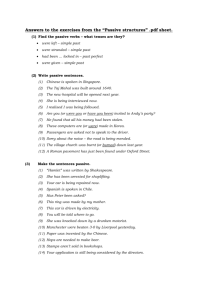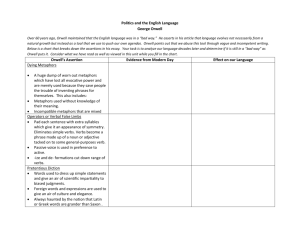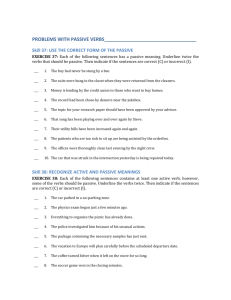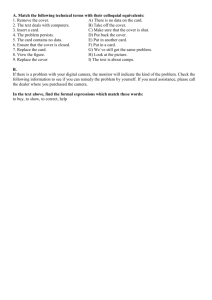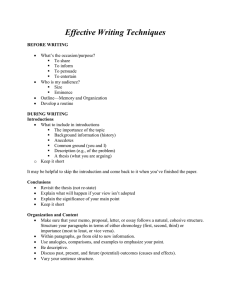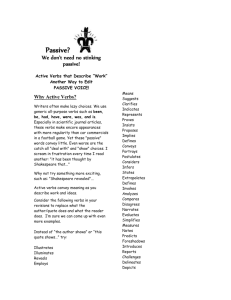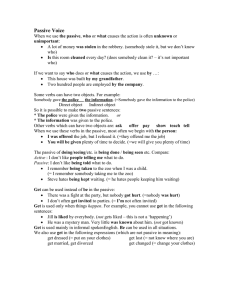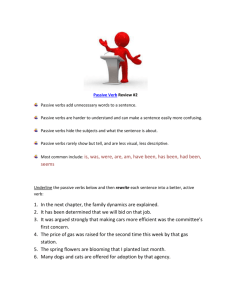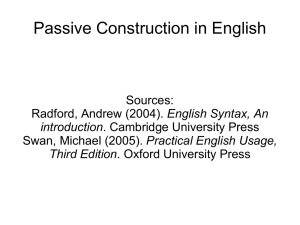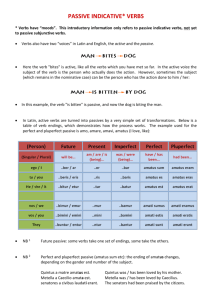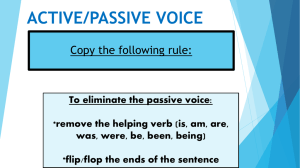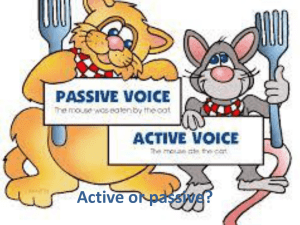handout - Sites@Duke
advertisement
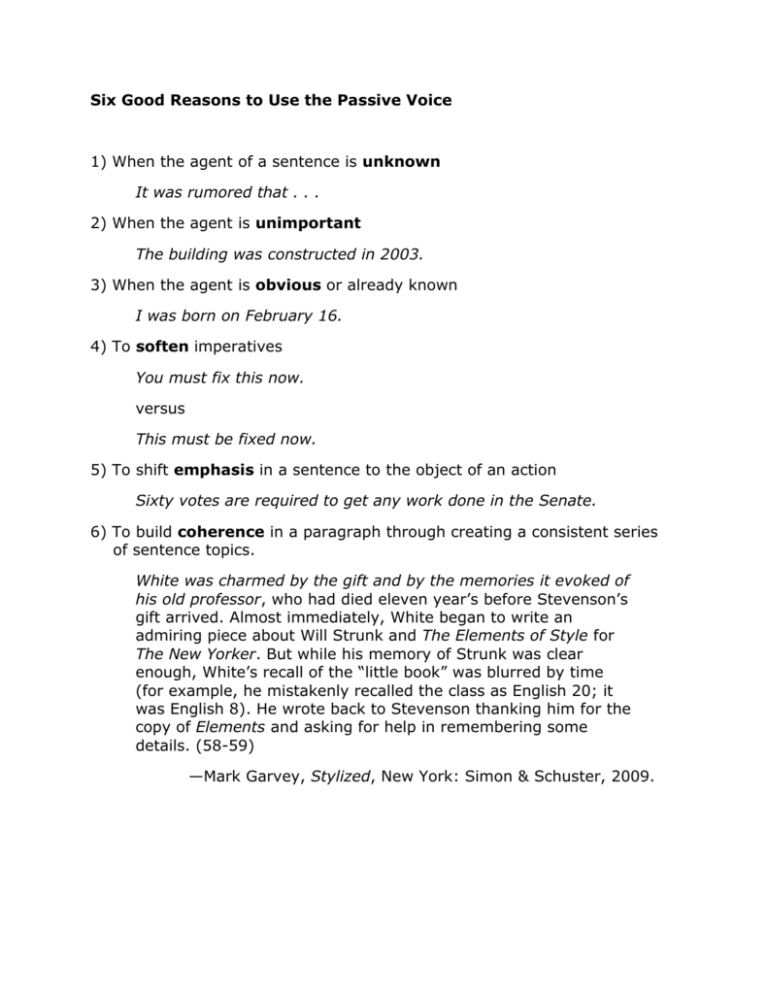
Six Good Reasons to Use the Passive Voice 1) When the agent of a sentence is unknown It was rumored that . . . 2) When the agent is unimportant The building was constructed in 2003. 3) When the agent is obvious or already known I was born on February 16. 4) To soften imperatives You must fix this now. versus This must be fixed now. 5) To shift emphasis in a sentence to the object of an action Sixty votes are required to get any work done in the Senate. 6) To build coherence in a paragraph through creating a consistent series of sentence topics. White was charmed by the gift and by the memories it evoked of his old professor, who had died eleven year’s before Stevenson’s gift arrived. Almost immediately, White began to write an admiring piece about Will Strunk and The Elements of Style for The New Yorker. But while his memory of Strunk was clear enough, White’s recall of the “little book” was blurred by time (for example, he mistakenly recalled the class as English 20; it was English 8). He wrote back to Stevenson thanking him for the copy of Elements and asking for help in remembering some details. (58-59) —Mark Garvey, Stylized, New York: Simon & Schuster, 2009. A Test Case: Orwell on the Passive Voice The following passage is one of the most famous bits of advice to writers in the English language. What do you make of it? Is Orwell ignoring his own advice? Making a joke? Modeling bad prose? Or is there a stylistic rationale for his use of the passive voice in denouncing the passive voice? OPERATORS, OR VERBAL FALSE LIMBS. These save the trouble of picking out appropriate verbs and nouns, and at the same time pad each sentence with extra syllables which give it an appearance of symmetry. Characteristic phrases are: render inoperative, militate against, prove unacceptable, make contact with, be subject to, give rise to, give grounds for, have the effect of, play a leading part (role) in, make itself felt, take effect, exhibit a tendency to, serve the purpose of, etc. etc. The keynote is the elimination of simple verbs. Instead of being a single word, such as break, stop, spoil, mend, kill, a verb becomes a phrase, made up of a noun or adjective tacked-on to some general-purposes verb such as prove, serve, form, play, render. In addition, the passive voice is wherever possible used in preference to the active, and noun constructions are used instead of gerunds (by examination of instead of by examining). The range of verbs is further cut down by means of the –ize and –de- formations, and banal statements are given an appearance of profundity by means of the not un- formation . . . . (106-07) —George Orwell. 1946/2005. “Politics and the English Language.” In Why I Write. New York: Penguin.
